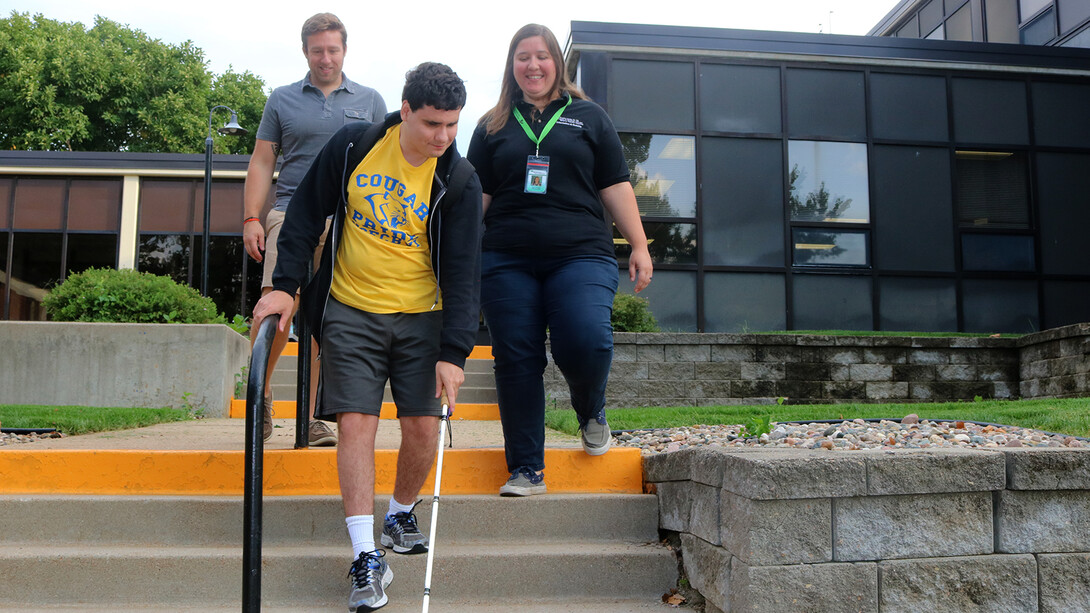
Growing up in a small farming community in north New Jersey, Eric Caruso’s family raised puppies for The Seeing Eye, an organization that raises and trains guide dogs for blind people.
After earning his bachelor’s degree in American history, Caruso began working at that same organization, which started him on a path that eventually led him to Nebraska.
Caruso recently joined the faculty in the University of Nebraska–Lincoln’s Department of Special Education and Communication Disorders as an assistant professor of practice. He will develop and coordinate a new program at Nebraska to train orientation and mobility specialists to work with people who are blind or visually impaired.
“Orientation and mobility encompasses everything from getting around your own home to working in a busy downtown setting and everything in between,” Caruso said. “Teaching proper cane technique is one aspect that we focus on. Another big part is learning traffic patterns, and how to navigate intersections, roundabouts and things like that. It’s the skills that individuals who have visual impairments need in order to safely and effectively travel.”
After graduating from Ramapo College of New Jersey, Caruso spent the next nine years working at The Seeing Eye. He credits that opportunity with introducing him to much of what he knows about the orientation and mobility field. While at The Seeing Eye, colleagues encouraged him to pursue a master’s degree. Caruso did, earning his master’s of science in special education, blind rehab studies from Western Michigan University in 2014. He expects to complete his doctorate from Florida State University next spring.
“I’ve been fortunate to learn from a lot of very interesting people in the orientation and mobility field, and I’ve been associated with a number of different programs, whether it was through internships or externships or just working there,” Caruso said. “I’m really excited to take all the different parts that I’ve learned from different people or different universities, and put them together to build this program. It’s an amazing opportunity to build a very comprehensive and successful program.”
At Nebraska, Caruso will work closely with assistant professor of practice Mackenzie Savaiano, who coordinates the graduate program in visual impairments. With Caruso’s addition to the faculty, Nebraska joins a small group of colleges and universities to offer orientation and mobility training. Caruso estimates only about 20 such programs exist across the country.
While orientation and mobility programs are difficult to find, the lack of actual orientation and mobility specialists is of even more concern to Caruso. It’s a problem he looks forward to addressing with Nebraska’s program.
“There’s a shortage of orientation and mobility instructors in Nebraska and across the country,” Caruso said. “We need to make sure that kids are getting all the services they need to be successful as they move through life. Then for the aging population, losing one’s vision can be difficult. It leads to, amongst other things, social isolation, and we need to make sure people are healthy and happy and able to progress through life in the way that will fulfill their needs. The ability to travel and be socially active is important to all of us.”
Individuals interested in learning more about the orientation and mobility program are encouraged to contact Caruso at ecaruso2@unl.edu.







